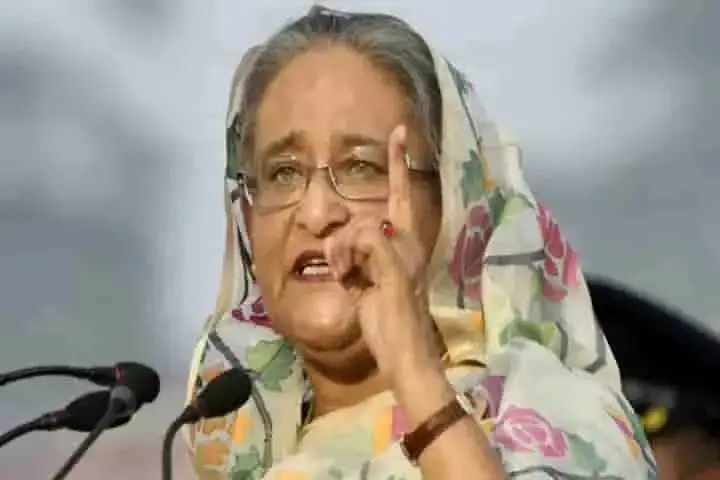Pakistan and Bangladesh are both part of the ambitious multi-trillion Belt and Road Initiative (BRI) but why is Islamabad in a near debt crisis while the latter continues to reap benefits?
While Pakistan Prime Minister Imran Khan put almost all eggs in one basket, his Bangladeshi counterpart Prime Minister Sheikh Hasina has managed the country’s economic policies far better. For one, unlike Pakistan, Bangladesh is not solely dependent on China and Chinese money to boost its infrastructure and overall economy.
Most importantly, Sheikh Hasina has managed to clearly pass on a critical message—that her country will not be dictated by any other power in the world.
Also read: Pakistanis protest in Taxila against CPEC for cutting off their villages
According to the Diplomat, if Pakistan is seen as a classic example of a debt crisis, then Bangladesh can be seen as an example of creating a “win-win situation” with the BRI.
An analyst told India Narrative that Bangladesh has carefully “managed and crafted” its foreign policy underlining that the country will be guided by its own interests. “Dhaka has maintained cordial relations with global powers and neighbours unlike Pakistan, which has positioned itself as solely relying on China..it even damaged ties with allies such as Saudi Arabia and UAE,” he said.
“The success of BRI projects in Bangladesh is highly dependent on the sustainable financing and economic viability of the projects,” the news organisation said. However, Bangladesh’s borrowing terms have been “extremely prudent.”
The Hasina government has drawn investments under the BRI on terms and conditions which benefit Dhaka. Importantly, the interest rates for the loans are moderate with over 30 years of repayment period. Besides, several of the infrastructure projects have also been undertaken jointly with India.
Despite having nine projects under BRI which includes the Padma Bridge Rail Link, Dhaka has given a clear message to Beijing that the latter will not be allowed to interfere in its domestic affairs.
In May, Dhaka even lashed out at Beijing after Chinese Ambassador in Bangladesh Li Jiming warned the Hasina government the bilateral relations between the two nations will be damaged if the South Asian country joined the QUAD.
Dhaka shot back saying that the incident was regrettable after which the Chinese envoy had to back track.
Also read: China's FDI into Pakistan slows down as differences over CPEC surface
“This has been Hasina’s biggest strength to be able to seen as someone who will not be bogged down by any power..this has also ensured that the BRI projects and loans towards the infrastructure sector remain just as economic dealings and that they do not automatically give Beijing the licence to get into its domestic and foreign policies,: the analyst added.
Observers point out that two other factors explain Hasina's clarity in development oriented governance. First, she has inheritied the fiercely independent spirit of safeguarding Bangladesh's sovereignty from her father, Sheikh Mujibur Rehman, the founder of Bangladesh. Second, she has not deviated from secularist ideology, battling forces of radicalism that can threaten focus on economic growth.




















